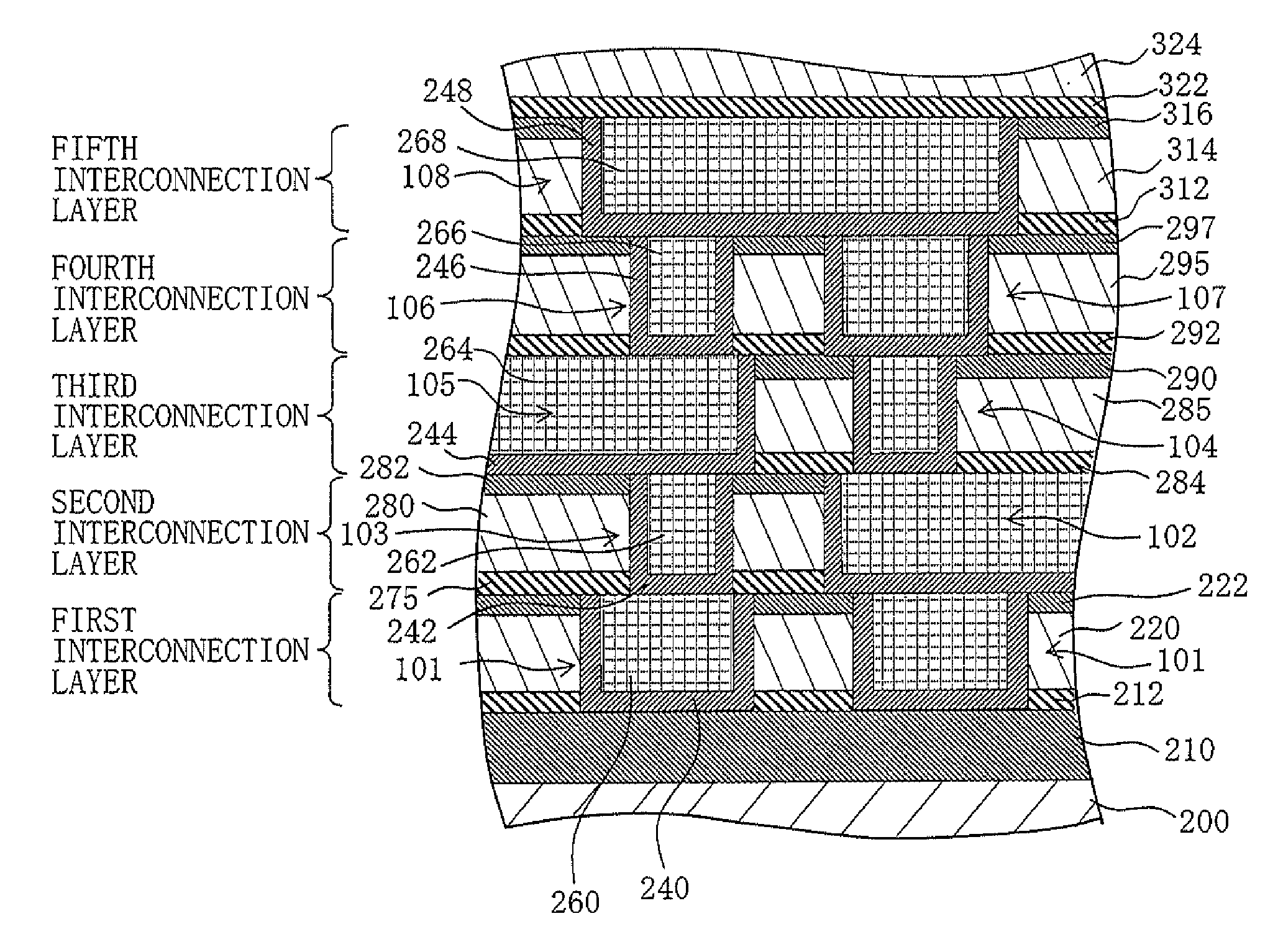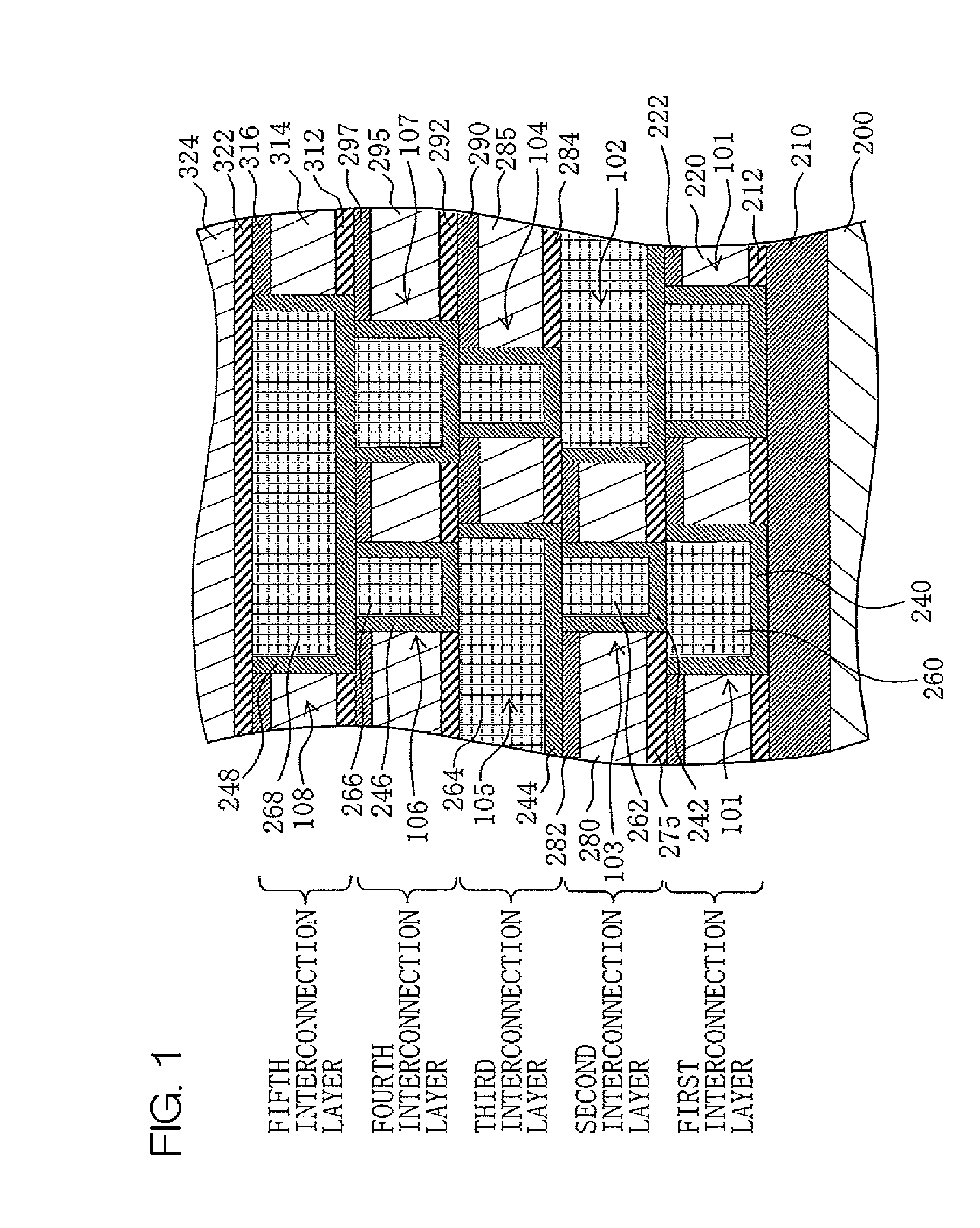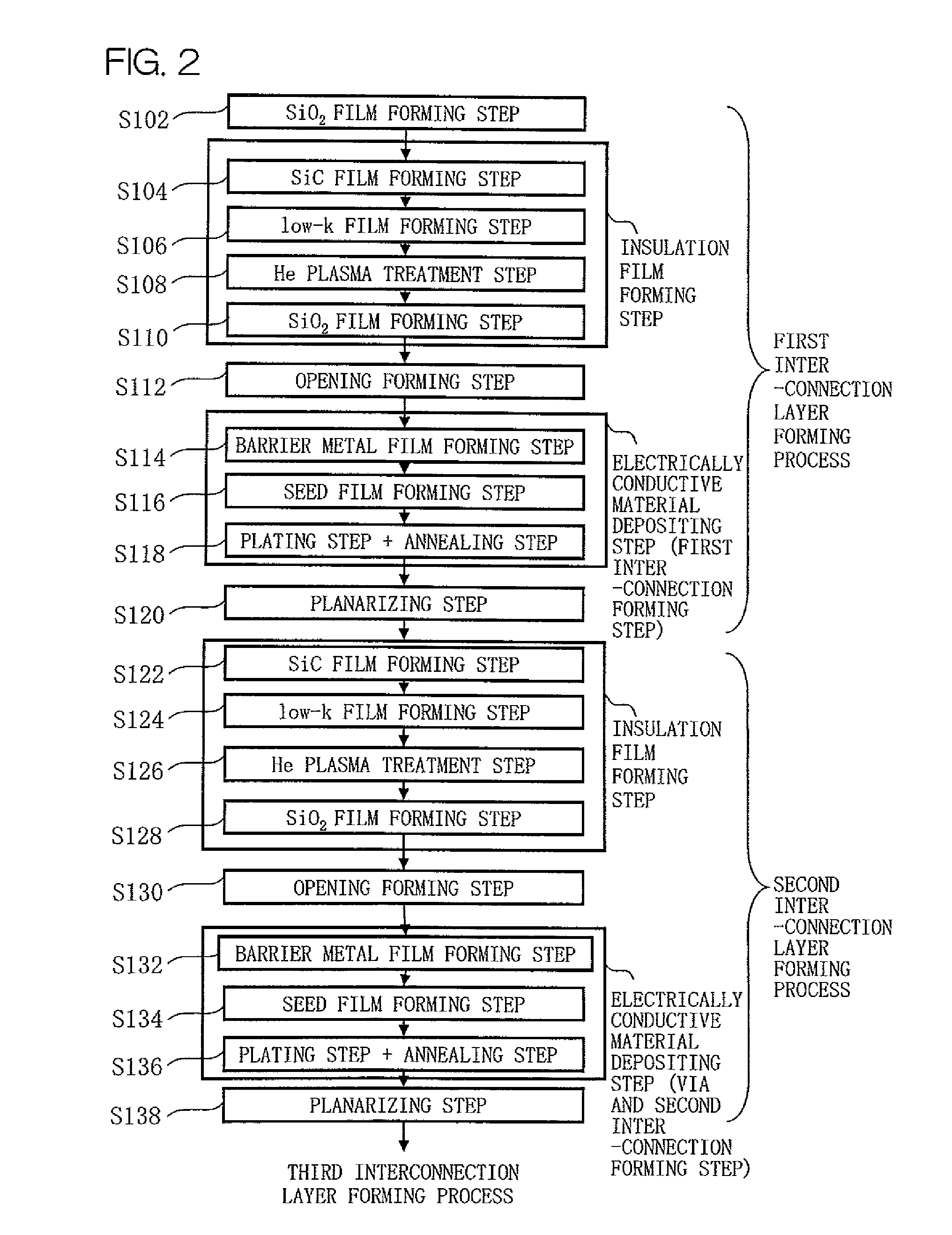Semiconductor device manufacturing method
a technology of semiconductor devices and manufacturing methods, applied in semiconductor devices, semiconductor/solid-state device details, electrical devices, etc., can solve the problems of signal transmission delay, difficult to increase the integration density, and difficult to micro-process cu, so as to improve the interconnection integration density
- Summary
- Abstract
- Description
- Claims
- Application Information
AI Technical Summary
Benefits of technology
Problems solved by technology
Method used
Image
Examples
Embodiment Construction
[0042]FIG. 1 is a sectional view of a semiconductor device according to a first embodiment of the present invention.
[0043]As shown in FIG. 1, the semiconductor device includes a SiO2 film 210 provided on a substrate 200, and a first interconnection layer, a second interconnection layer, a third interconnection layer, a fourth interconnection layer and a fifth interconnection layer stacked in this order on the SiO2 film 210. Although the semiconductor device includes the first to fifth interconnection layers in this embodiment, the semiconductor device may include a greater number of interconnection layers to provide a multilevel structure.
[0044]The first interconnection layer includes a first insulation film which includes an underlying SiC film 212, a low-k film 220 provided on the SiC film 212, and a SiO2 film 222 as a cap film. The first interconnection layer further includes Cu films 260 as interconnections 101, and barrier metal films 240 respectively provided in contact with s...
PUM
 Login to View More
Login to View More Abstract
Description
Claims
Application Information
 Login to View More
Login to View More - R&D
- Intellectual Property
- Life Sciences
- Materials
- Tech Scout
- Unparalleled Data Quality
- Higher Quality Content
- 60% Fewer Hallucinations
Browse by: Latest US Patents, China's latest patents, Technical Efficacy Thesaurus, Application Domain, Technology Topic, Popular Technical Reports.
© 2025 PatSnap. All rights reserved.Legal|Privacy policy|Modern Slavery Act Transparency Statement|Sitemap|About US| Contact US: help@patsnap.com



